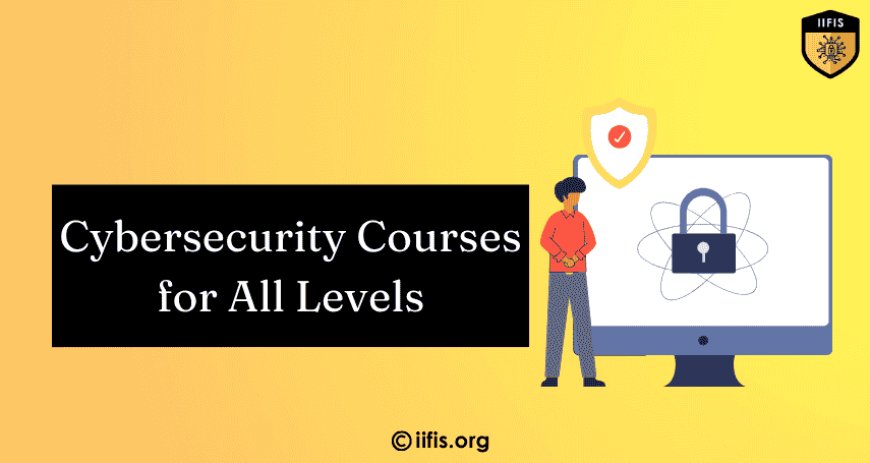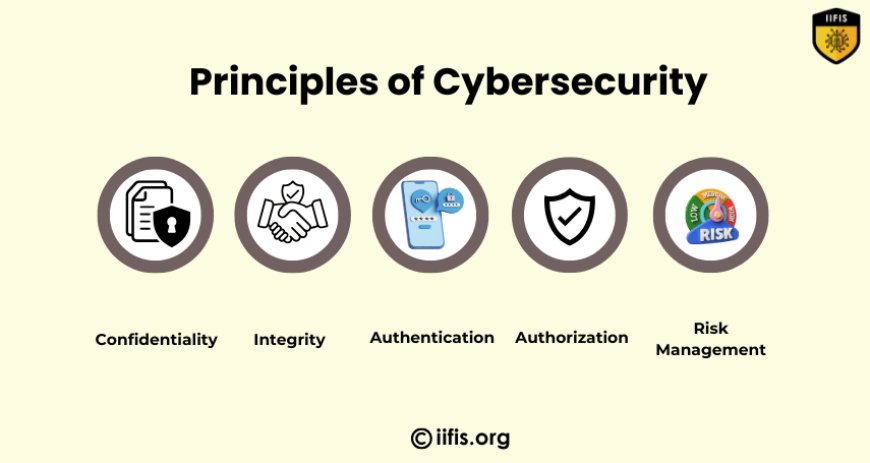Cybersecurity Courses for All Levels: From Beginner to Expert
Cybersecurity courses for all levels, from beginner to expert. Learn to protect networks, data, and systems from cyber threats and enhance security skills

As an expert in the field of cybersecurity, I can confidently say that cybersecurity is no longer just a niche for information technology professionals. It has become a critical domain that affects every aspect of our digital lives. Whether you're an individual looking to enhance your skills, a business aiming to protect your data, or someone considering a career change, cybersecurity courses provide an essential foundation and advanced knowledge that can empower you to thrive in this ever-evolving field.
From understanding the basics of online threats to becoming proficient in advanced penetration testing techniques, cybersecurity education caters to all levels of expertise. Let me walk you through how these courses can benefit learners at various stages and why investing time in mastering these skills is vital for the future.
Why Cybersecurity is Crucial for Everyone
The increasing prevalence of cyberattacks, data breaches, and identity theft highlights the need for a strong understanding of cybersecurity. Not only businesses but individuals are also at risk from cyber threats. As a result, organizations worldwide are seeking cybersecurity experts to protect sensitive information, networks, and systems. This creates a high demand for professionals with the necessary skills and expertise in the field.
Cybersecurity courses provide individuals with the knowledge needed to defend against online threats, build secure networks, and ensure safe digital practices. These programs are designed to provide foundational knowledge for beginners and advanced skills for seasoned experts. They help bridge the knowledge gap, offering relevant insights into safeguarding data, preventing attacks, and understanding vulnerabilities in modern systems.
Cybersecurity Courses for Beginners
For individuals just starting out in cybersecurity, there are beginner-level courses that lay the groundwork for a successful career in this dynamic field. These courses introduce fundamental concepts such as types of cyber threats, the basics of cryptography, and the importance of secure passwords and authentication methods. Beginners will also learn about network security, malware detection, and firewalls.
Common beginner cybersecurity courses include:
-
Introduction to Cybersecurity: Covers the basics of cybersecurity principles, threats, and defense mechanisms.
-
Networking Fundamentals: Teaches the foundation of networking, which is crucial for understanding network security.
-
Basics of Encryption: Focuses on data encryption and how it protects sensitive information.
By completing these courses, beginners will gain a strong understanding of the basic principles of cybersecurity, which will serve as a foundation for more advanced studies.
Intermediate Cybersecurity Courses: Building on Your Knowledge
Once you have a solid understanding of the basics, it’s time to explore intermediate cybersecurity courses. These programs dive deeper into key areas of cybersecurity, allowing learners to hone their skills and gain a more nuanced understanding of the field. Intermediate courses typically focus on specific areas such as network defense, ethical hacking, and incident response.
Popular intermediate-level cybersecurity courses include:
-
Ethical Hacking and Penetration Testing: Teaches ethical hacking techniques to identify system vulnerabilities before malicious hackers can exploit them.
-
Incident Response and Forensics: Focuses on how to respond to a cybersecurity incident and investigate digital footprints.
-
Network Security: Delves into securing networks against unauthorized access, data theft, and disruptions.
Intermediate-level cybersecurity courses build on the foundation laid in beginner courses, enabling professionals to apply practical skills in real-world situations.
Advanced Cybersecurity Courses for Experts
For experienced cybersecurity professionals looking to enhance their expertise, advanced courses are designed to push the boundaries of knowledge. These courses cover complex topics, such as advanced penetration testing, cryptography, malware analysis, and advanced threat-hunting techniques.
Some of the most popular advanced cybersecurity courses include:
-
Advanced Penetration Testing: Teaches techniques to exploit vulnerabilities in various environments, including networks, applications, and systems.
-
Malware Analysis and Reverse Engineering: Focuses on identifying, analyzing, and counteracting sophisticated malware.
-
Cloud Security: Focuses on securing cloud environments, which are increasingly targeted in cyberattacks.
These courses are suited for individuals who have already mastered the basics and are now looking to tackle cutting-edge technologies and sophisticated threats in cybersecurity.

Specialized Cybersecurity Certifications and Training
Cybersecurity is a vast field, and many professionals choose to specialize in particular areas. Whether it’s ethical hacking, cloud security, or risk management, specialized certifications can boost your career and help you stand out in the competitive cybersecurity job market.
Some highly regarded certifications in the cybersecurity domain include:
-
Certified Ethical Hacker (CEH): focuses on hacking techniques and penetration testing to identify vulnerabilities in systems.
-
Certified Information Systems Security Professional (CISSP): Designed for professionals in management and security policy, offering a comprehensive understanding of cybersecurity.
-
CompTIA Security+: A vendor-neutral certification that covers network security, risk management, and compliance, suitable for entry-level positions.
-
Certified Penetration Tester (CPT): Specializes in testing network and system security by simulating cyberattacks to discover potential vulnerabilities.
-
Certified Cyber Security Manager (CCSM): Focuses on cybersecurity management, risk management strategies, and organizational security.
-
Cyber Security for Leaders: Designed for business leaders and executives, this certification covers how to implement and manage cybersecurity strategies at an organizational level.
-
AI Cyber Security Associate: Focuses on the intersection of artificial intelligence and cybersecurity, teaching how AI can be used to detect and mitigate cyber threats.
By pursuing these specialized certifications, professionals demonstrate their commitment to mastering specific areas of cybersecurity, further enhancing their skill set and job prospects.
Cybersecurity Courses: Online vs. In-Person Learning
When choosing a cybersecurity course, it's important to consider the format that best suits your learning style and lifestyle. Both online and in-person options have their advantages, and your choice will depend on factors such as schedule flexibility, cost, and hands-on experience.
Online Learning: Online cybersecurity courses offer flexibility, allowing learners to study at their own pace. Online learning often includes video lectures, quizzes, and practical exercises.
In-Person Learning: Traditional classroom settings provide a more immersive learning experience, with direct interaction with instructors and peers. In-person courses are ideal for those who prefer structured environments and real-time feedback.
Both formats can be equally effective, depending on your learning preferences and career objectives. Many online courses now offer live virtual sessions that combine the flexibility of online learning with the engagement of in-person interactions.
The Future of Cybersecurity Education
As cyber threats continue to evolve, the demand for skilled cybersecurity professionals will only grow. In response to this need, educational institutions and organizations are constantly innovating and adapting their training programs. The future of cybersecurity education lies in a mix of traditional and cutting-edge learning methods, such as:
-
Virtual labs and simulations that mimic real-world environments.
-
AI-driven personalized learning paths that tailor courses to individual skill levels.
-
Continuous updates to course content to keep up with new threats and technologies.
The future is bright for those pursuing cybersecurity education. With an array of courses available for all skill levels, anyone can start building the knowledge and skills needed to thrive in this crucial field.























